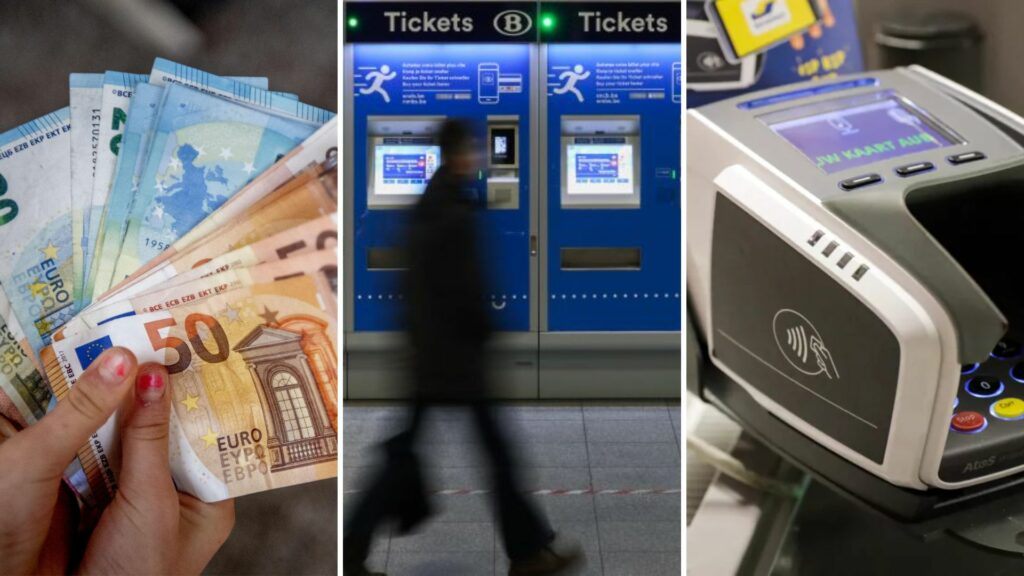Belgium's relationship with cash frequently confuses and confounds – for a place that should be the beating heart of modern convenience, matters seem rather anachronistic when it comes to paying.
What makes life difficult, especially for non-Belgians (of which we are many), is the lack of consistency: despite the option to pay by card now being enshrined in law, the realities on the ground are far less harmonised. Try your card in some venues and risk inciting the wrath of hitherto genial bar staff. Meanwhile many restaurants are card only – as long as it's not Mastercard.
Residents learn quickly that the way to go is Bancontact – a Belgian standard that should do the trick anywhere (that isn't money laundering). This system is also a doddle when it comes to payments online, with banking apps recognising QR codes at lightning speed. But where Belgium seems ahead of the curve in one respect, in others it's a bit hopeless.
Whilst other states have fully embraced digital streamlining, making it perfectly possible to go out with just a smartphone, experience dictates that when in Belgium you should keep on your person various cards (not forgetting the legal obligation to carry a national ID card or passport) and a bit of cash. At which point you can take a hike to find a functioning ATM.
Taking all the complications into account, various steps have been taken at a national level to straighten things out, the trend being towards digitisation in a bid to close the door to payments below the radar. The latest is the imminent end to cash payments for tickets bought on board trains.
Whilst other countries will fine passengers who have boarded without a ticket, Belgium makes allowance for this, albeit with a €9 surcharge for not buying a ticket at the station. The national operator SNCB cites abuse of train guards as the main motivation and hopes this will make their job easier, saving them from fumbling for change.
But the move seems a round-about way of reducing the strain on staff that have held successive strikes in recent months. Cash or card, the problem of troublemaking free-riders won't be solved without personnel investments. Elsewhere the discussion about boarding without a ticket is closed, is this the answer?
Let @Orlando_tbt know.
Belgium in Brief is a free daily roundup of the top stories to get you through your coffee break conversations. To receive it straight to your inbox every day, sign up below:
1. SNCB to get rid of cash payment when onboard trains
In a move to make the job of train guards easier, customers will no longer be able to buy tickets using cash when already on board SNCB trains. The change will come into force at the start of May. Read more.
2. 'We have to fight': Banks compete for home buyers as mortgage applications drop
Competition for home buyers is intensifying among Belgium's major banks as rising interest rates and high inflation have driven mortgage applications to record lows, l'Echo reports. Read more.
3. Train travel resumes following complete standstill, delays expected
Early on Tuesday morning, train traffic between Brussels Midi (South) and Brussels North Station came to a standstill as a result of smoke on the line, resulting in a major disruption of the entire network. Read more.
4. Activist footage reveals severe mistreatment at Belgian cattle farms
Undercover footage taken at two Belgian cattle farms has revealed mistreatment of calves who are kicked, beaten, pulled by the tail and ears and even tortured with banned electric shock weapons. Read more.
5. Brussels orange bin bag obligation pushed back to mid-May
The introduction of the orange bin bag obligation for organic waste, which was due to come into force at the start of next month, has been postponed for households. Read more.
6. Uber fares allegedly linked to phone battery levels
Ride-hailing app Uber faces accusations of adjusting prices based on customers' smartphone battery levels, Belgian daily Dernière Heure reports. Read more.
7. How Belgium used art and architecture to legitimise colonial Congo
Belgium’s colonisation in Congo is now recognised for its exceptionally savage and cruel exploitation, but it was sold to Belgians as a glorious enterprise. Read more.


